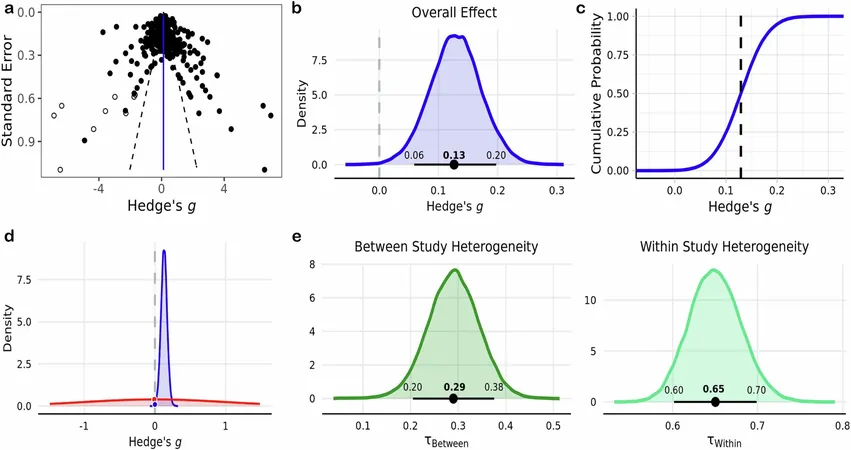
Could Short Bursts of Exercise Be the Ultimate Brain Booster? Scientists Reveal Surprising Connections!
2024-10-15
Author: Michael
Introduction
Recent research from UC Santa Barbara is reshaping our understanding of the relationship between exercise and cognitive function. While long-term exercise regimens have been widely known to enhance both physical health and mental acuity, new findings spotlight the potential of short, intense bursts of physical activity to deliver impressive cognitive benefits.
The Groundbreaking Study
The groundbreaking study, titled “A systematic review and Bayesian meta-analysis provide evidence for an effect of acute physical activity on cognition in young adults,” has ignited excitement in the scientific community. Published in Communications Psychology, this research examined the cognitive effects of single bouts of exercise, challenging the traditional focus on extended workout programs.
Insights from Barry Giesbrecht
Barry Giesbrecht, a notable professor in Psychological & Brain Sciences and senior author of the study, explained, “We already knew that regular exercise significantly boosts cognition and supports neurogenesis—the process of forming new neurons—over time. However, the impact of shorter, single sessions was less clear, with previous studies yielding mixed results.”
Research Methodology
The research team honed in on individuals aged 18 to 45, meticulously screening thousands of studies published from 1995 to 2023 to identify clear trends and outcomes. They discovered that high-intensity activities, particularly cycling and high-intensity interval training (HIIT), consistently yielded positive effects on critical cognitive functions, including memory, attention, and information processing.
Remarkable Results
“The most remarkable results appeared with vigorous exercise,” Giesbrecht added. “Interestingly, we found that cognition improved more significantly when assessed after exercise rather than during it, and notably, bursts of physical activity lasting less than 30 minutes had a stronger impact than longer sessions.”
Executive Functioning and Future Research
An intriguing facet of the study indicated that executive functioning—the ability to manage and regulate thoughts and actions—was particularly influenced by vigorous physical activities. However, it’s worth noting that the overall cognitive enhancements observed from a single exercise session were generally modest.
Giesbrecht pointed out an intriguing consideration: the enhancements might be subdued because traditional cognitive tasks often don’t integrate the physical exertion aspect. This hypothesis opens up a myriad of possibilities for future research, suggesting that combining physical activity with cognitive tasks may lead to more profound cognitive benefits.









 Brasil (PT)
Brasil (PT)
 Canada (EN)
Canada (EN)
 Chile (ES)
Chile (ES)
 España (ES)
España (ES)
 France (FR)
France (FR)
 Hong Kong (EN)
Hong Kong (EN)
 Italia (IT)
Italia (IT)
 日本 (JA)
日本 (JA)
 Magyarország (HU)
Magyarország (HU)
 Norge (NO)
Norge (NO)
 Polska (PL)
Polska (PL)
 Schweiz (DE)
Schweiz (DE)
 Singapore (EN)
Singapore (EN)
 Sverige (SV)
Sverige (SV)
 Suomi (FI)
Suomi (FI)
 Türkiye (TR)
Türkiye (TR)